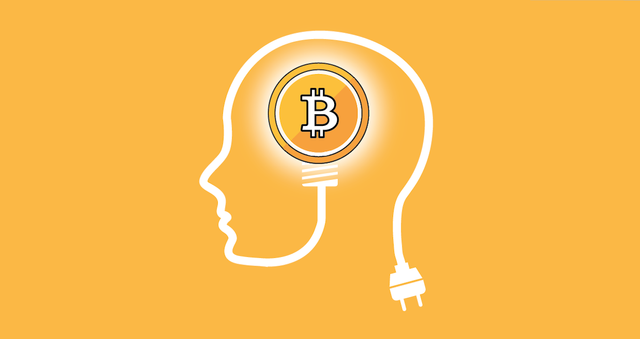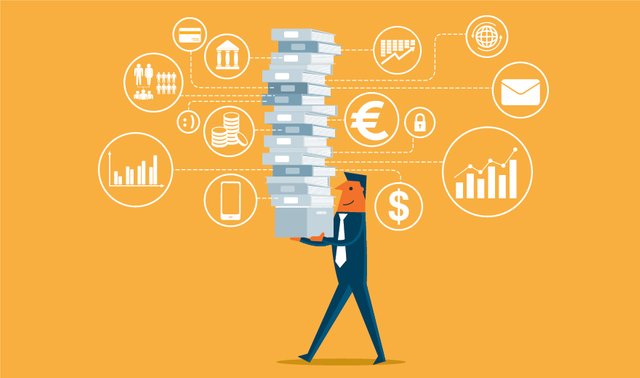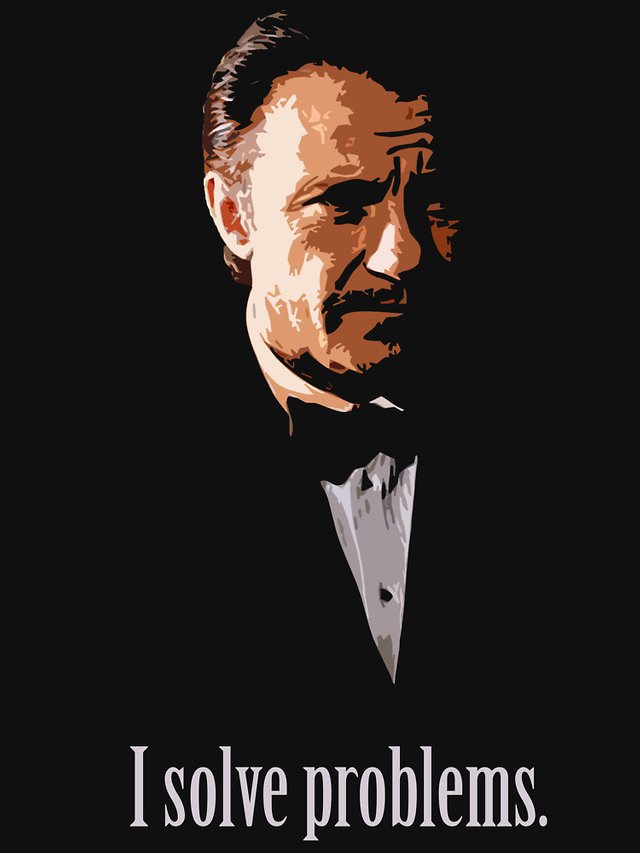Five Ways Smart Contracts On A Blockchain Are Changing The Way We Do Business
The first era of the internet, the internet of information, brought us wealth but not shared prosperity, because social inequality is growing. And this is at the heart of all the anger and extremism and protectionism and xenophobia and worse, that we're seeing growing in the world today. Brexit being the most recent case.

So could we develop some new approaches to this problem of inequality? Because the only approach today is to redistribute wealth, tax people and spread it around more.
Could we pre-distribute rather than redistribute wealth? Could we democratize the way wealth gets created in the first place, engaging more people in the economy and then ensuring that they got fair compensation?
Let me describe 5 ways that this can be done.
Titles
Did you know that 70% of the people in the world who have land have a tenuous title to it?
So, you've got a little farm in Honduras, some dictator comes to power, he says, "I know you've got a piece of paper that says you own your farm, but the government computer says my friend owns your farm."
This happened on a mass scale in Honduras, and this problem exists everywhere.
Hernado de Soto, the great Latin American economist, says this is the number one issue in the world in terms of economic mobility, more important than having a bank account, because if you don't have a valid title to your land, you can't borrow against it and you can't plan for the future.
So today, companies are working with governments to put land titles on a blockchain and once it's there, this is immutable. You can't hack it. This creates the conditions for prosperity for potentially billions of people.
Creating A True Sharing Economy
Many writers talk about Uber, Airbnb, TaskRabbit and Lyft and so on as part of the sharing economy. This is a very powerful idea that peers can come together and create and share wealth.
My view is that these companies are not really sharing. In fact, they're successful precisely because they don't share. They aggregate services together and they sell them.
What if rather than Airbnb being a $25 billion corporation, there was a distributed application on a blockchain, we'll call it B-Airbnb, and it was essentially owned by all of the people who have a room to rent.
When someone wants to rent a room they go on to the blockchain database and all the criteria they sift through helps them find the right room and then the blockchain helps them with the contracting, it identifies the party, it handles the digital payments and is all built into the system. And it could even handle reputation, because if someone rates a room as a five-star room that room is there, and it's rated and it's immutable.
The big sharing-economy disruptors in Silicon Valley could be disrupted and this would be good for prosperity.
Ending The Remittance Ripoff
The biggest flow of funds from the developed world to the developing world is not corporate investment and it's not even foreign aid. It's remittances.
This is the global diaspora. People have left their ancestral lands and they're sending money back to their families at home.
This is a $600 billion dollars a year and it's growing and these people are getting ripped off.
AnnaLee Domingo is a housekeeper who lives in Toronto and ever month she goes to the Western Union office with some cash to send her remittances to her mom in Manila.
It costs her around 10%, the money takes 4-7 days to get there, mom never knows when it's going to arrive. It takes 5 hours out of her week to do this.
Six months ago AnnaLee Domingo used a blockchain application called Abra and from her mobile device she sent $300 that went directly to her mom's mobile device without going through an intermediary.
Her mom looked at her mobile device, it's kind of like an Uber interface, there's Abra "tellers" moving around. She clicks on a teller that's a five-star teller who's seven minutes away. The guy shows up at the door and gives her Filipino pesos and she puts them in her wallet. The whole thing took minutes and it cost her 2%.
This is a big opportunity for prosperity.
Recapturing Our Identity
Enabling Citizens To Own And Monetize Their Own Data

The most powerful asset of the digital age is data. Data is really a new asset class, maybe bigger than previous asset classes, like land under the agrarian economy or an industrial plant or even money.
All of you -- we -- create this data. We create this asset and we leave this trail of digital crumbs behind us as we go throughout life and these crumbs are collected into a mirror image of you, the virtual you.
The virtual you may know more about you than you do because you can't remember what you bought a year ago or said a year ago or your exact location a year ago.
And the virtual you is not owned by you. That's the big problem.
Today there are companies working to create an identity in a black box -- the virtual you owned by you. This black box moves around with you as you travel throughout the world and it's very, very stingy. It only gives away the shred of information that's required to do something.
A lot of transactions the seller doesn't even need to know who you are, they just need to know that they got paid.
This black box avatar is sweeping up all this data and enabling you to monetize it which is a wonderful thing because it can also help protect out privacy and privacy is the foundation of a free society.
Let's get this asset that we create back under our control where we can own our own identity and manage it responsibly.
Ensuring Compensation For The Creators Of Content
There are a whole number of creators of content who don't receive fair compensation because the system for intellectual property is broken.

Take music for example. Musicians are left with crumbs at the end of the whole food chain. You know if you're a songwriter 25 years ago who wrote a hit song that got a million singles you could get royalties of around $45,000.
Today if you're a songwriter who writes a hit song that gets a million streams, you don't get $45K, you get $36 dollars. Enough to buy a couple pizzas.
Imogen Heap, the grammy-winning, singer-songwriter is now putting music on a blockchain ecosystem called Mycelium and the music has a smart contract surrounding it which protects her intellectual property rights.
You want to listen to the song it's free or maybe a few micro-cents that flow into a digital account. You want to put the song in your movie, that's different and the IP rights are all specified. You want to make a ringtone? That's different.
She describes that the song becomes a business that is out there on this platform marketing itself, protecting the rights of the author and because the song has a payment system, in a sense a bank account, all the money flows back to the artist and they control the industry rather than these powerful intermediaries.
This is not just for songwriters, it's any creator of content like art, inventions, scientific discovery, journalists. There are all kinds of people who don't get fair compensation and with blockchains there are going to be able to make it rain on the blockchain.
Conclusions
These are five opportunities to solve one problem -- prosperity -- which is one of countless problems the blockchains are applicable to.
Technology doesn't create prosperity, of course, people do. But my case to you is that, once again, the technology genie has escaped from the bottle and it was summoned by an unknown person or persons at this uncertain time in human history, giving us another kick at the can, another opportunity to rewrite the economic power grid and the old order of things and to solve some of the worlds most difficult problems if we will it.
Related Posts
Bitcoin Vs Banks Technological Disruption Can Revolutionize Banking
Blockchain Is Killing The Middleman Real Trust In A Virtual World
Today I Learned More About Bitcoin And Blockchain Technology

In Chile many properties were "awarded" to certain people with a regime change. Then, when the regime was overthrown, the original owners had a right to claim it.
IOW, you NEVER buy land in Chile without a lawyer making sure that the title is clear. You might be buying from someone who's had it for years, only to have the original owners come and claim it. If that happens, you're completely out.
Not sure how the blockchain can work through something like this. But my understanding of it is weak. Hopefully it'll alleviate many of these types of issues.
Even in the US, I've had title issues appear years after I bought a house. This has happened twice. I had title insurance. That let me put all the responsibility on the title insurance company. I'm not saying title insurance is the way to fix problems. I am agreeing that the blockchain could handle problems even in places that are more sedate than regime changes. The blockchain really has some amazing applications.
I also know many people in the US who have had title issues concerning their property. It's much more common then people realize.
I thought it was just my luck, lol. Before that, I thought the title insurance was sort of a scam. But not anymore. The blockchain would help out here, for sure.
Blockchains are already doing exactly that. They create an immutable record of a contract that can execute the terms of the contract and cannot be corrupted.
Well written! Resteemed
Here's a little experiment I tried this week to get a friend to join Steemit. Maybe this could work for your brother and you could make a post for it. Read this
Thanks so much.
Thank you! I know exactly which friend to point this at as well!
Very well written, and strangely I've recently had a conversation with my new employer and his views on some projects regarding true power of blockchain beyond the world of crypto currency, but the way it will change Bureaucracy
Thanks for reading my post.
Another great article! Thanks for the insight.
Thanks man!
Upvoted! Do you happen to know if anything to do with votes changed today? My vote count just dropped by 200 upvotes. Thanks
No, I haven't heard anything about votes changing in any way. Let me know if you found out what happened.
Seems its effecting your post as well....wtf happened...
Did you find out anything about the upvotes reduction you mentioned?
https://steemit.com/steemvoter/@steemvoter/steemvoter-com-update-dec-4th-2016
steemvoter had some bugs in the last update, seem a bunch of people will have to reset who they autovote for.
I see. I guess there are a lot of bots out there as we can now see the real views on a post and it's not anywhere near the number of votes garnered.
Yeah,Idk, a lot of people vote from the feed screen which doesnt count as a view, me included if its from someone who I likes stuff and I know them to put out good stuff but its not a topic that interest me to much most of the time I just upvote and dont read. Also not sure if people who arn't signed in count as views.
This post has been ranked within the top 80 most undervalued posts in the first half of Dec 04. We estimate that this post is undervalued by $4.47 as compared to a scenario in which every voter had an equal say.
See the full rankings and details in The Daily Tribune: Dec 04 - Part I. You can also read about some of our methodology, data analysis and technical details in our initial post.
If you are the author and would prefer not to receive these comments, simply reply "Stop" to this comment.